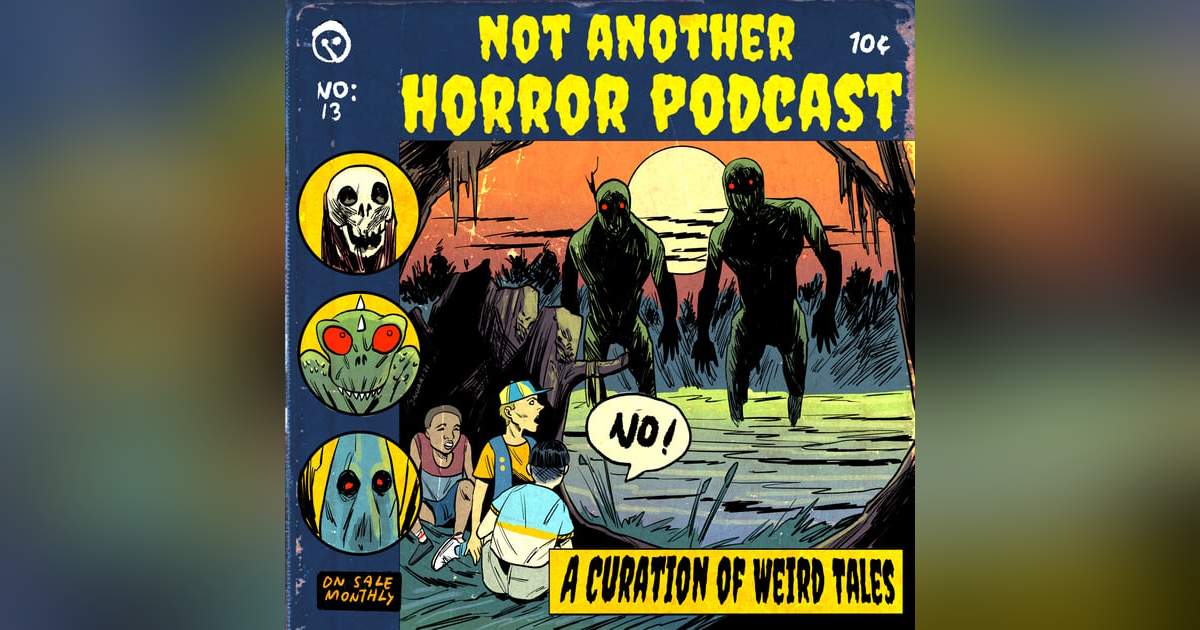The Szondi Test Will Reveal The Parts Of You That You Hide!

This test was originally created by Hungarian psychiatrist Leopold Szondi in 1935. Szondi believed that it was possible to reveal the dark and repressed impulses within us simply by the aversion we show towards certain people.
Each of the eight photos is supposed to reveal a hidden aspect of the human psyche, revealing the psychological drives and tendencies that we unknowingly carry inside. These latent impulses were repressed in childhood because they were deemed inappropriate, “bad,” or somehow socially unacceptable in the environment we grew up in.
The Szondi test operates on the principle that we are inherently attracted or repulsed by people who are similar to us. So pay careful attention to each mental patient and the “face” they give to the repressed impulse potentially within you!
Terms You Need to Know
The following psychological terms will show up in your result. I’ve included a simple explanation of what each means:
Repression: This is a psychological defense mechanism that prevents us from feeling emotions or impulses that we believe are wrong, “bad” or unacceptable. Repression occurs when we push down a character trait, feeling, habit, or desire into our unconscious mind so that we are no longer consciously aware of it.
Denial: The practice of completely refusing to accept the reality of something within us such as a habit, trait, feeling, impulse, or desire. Denial can be either conscious or unconscious (i.e. we’re not aware of it), and in an attempt to further protect ourselves, we may adopt the opposite behavior of what we have repressed.
How to Take This Test
Look at the portraits of the people below and choose ONE person who you would NOT like to meet walking down a dark alley at night. Go with whatever person gives you the creeps, disturbs you, or generates fear or disgust within you.
Important Note
Please don’t misunderstand your result: it does not imply that you have a mental illness. Instead, approach your result with the perspective that this could be a potentially repressed impulse within your psyche.
The original Szondi test had six sets of eight portraits, but this test presents a simplified version.
Sadist

Repression:
You have likely repressed the need to dominate others as a result of struggling with authoritarian figures in your early life. Deep inside you may harbor repressed desires to see others either socially, emotionally, sexually, or physically suffer.
Denial:
You’re likely a peaceful and completely harmless person who likes to help others. However, in order to prevent others from asserting their authority over you, you may be passive aggressive as a way of indirectly defying and punishing others.
What to Do:
If you can relate to your result, here are some helpful ways to balance your psyche:
- Journal – privately record and explore your thoughts, wishes, and desires. Be unfiltered and as expressive as you want to be: don’t repress anything!
- Catharsis – let out any repressed emotions or desires through running, dancing, screaming, crying, laughing, or any form of physical self-expression.
- Shadow Work – explore your unconscious mind and your Shadow Self. Shadow work is only beneficial when we approach it with a self-loving mindset and an open heart. So avoid this practice if you’re still struggling with self-loathing tendencies.
- Art Therapy – draw, paint, scrapbook or otherwise artistically express your emotions. Art therapy is a proven way to help you achieve more inner balance and peace of mind.
Epileptic

Repression:
Epilepsy is a neurological disorder, however in this case, epilepsy refers to the ‘seizures’ we may experience from repressed emotions that build up and explode. If this stout gentleman caused you to feel disgust or fear, you are likely repressing emotions such as rage, aggression, irritability, and impulsiveness. The reason why you may have repressed these emotions is that in early childhood you learned that such emotions were “not OK.”
Denial:
To protect yourself from experiencing strong emotions like anger, you may have developed a strong emotional facade. You are likely a kind and peaceful person who has a meek and friendly disposition and can be easily relied upon by others. However, your self-control has the potential of dissolving under stress and causing you to lash out at others or “explode.”
What to Do:
If you can relate to your result, here are some helpful ways to balance your psyche:
- Journal – privately record and explore your thoughts, wishes, and desires. Be unfiltered and as expressive as you want to be: don’t repress anything!
- Catharsis – let out any repressed emotions or desires through running, dancing, screaming, crying, laughing, or any form of physical self-expression.
- Shadow Work – explore your unconscious mind and your Shadow Self. Shadow work is only beneficial when we approach it with a self-loving mindset and an open heart. So avoid this practice if you’re still struggling with self-loathing tendencies.
- Art Therapy – draw, paint, scrapbook or otherwise artistically express your emotions. Art therapy is a proven way to help you achieve more inner balance and peace of mind.
Katatonic

Repression:
This unshaven and smiling gentleman embodies the face of mental hyperactivity; of living solely within the mind and losing touch with reality. Disconnection with the body and other people, as well as being oblivious to the emotional/physical needs of oneself and others, is a major sign of this type.
Denial:
In an attempt to avoid losing touch with reality, a dutiful, inhibited, and rule-driven personality may develop. You are likely a highly intelligent person who dislikes change and prefers everything to be concrete.
What to Do:
If you can relate to your result, here are some helpful ways to balance your psyche:
- Journal– privately record and explore your thoughts, wishes, and desires. Be unfiltered and as expressive as you want to be: don’t repress anything!
- Catharsis – let out any repressed emotions or desires through running, dancing, screaming, crying, laughing, or any form of physical self-expression.
- Shadow Work – explore your unconscious mind and your Shadow Self. Shadow work is only beneficial when we approach it with a self-loving mindset and an open heart. So avoid this practice if you’re still struggling with self-loathing tendencies.
- Art Therapy – draw, paint, scrapbook or otherwise artistically express your emotions. Art therapy is a proven way to help you achieve more inner balance and peace of mind.
Schizophrenic

Repression:
If the impassive and vacant gaze of this woman gave you the creeps, you might be repressing apathy towards other people and a sense of internal isolation towards life. This type is also characterized by thought distortions (such as paranoia and delusions), mental confusion, and a general inability to relate to yourself and others.
Denial:
You are likely a sociable person who enjoys communicating with others and spending time with friends. However, your friendliness may be a mask for the sense of inner loneliness you feel around even your closest friends. Your relationships might also lack depth and substance due to your own disconnection from your inner self.
What to Do:
If you can relate to your result, here are some helpful ways to balance your psyche:
- Journal – privately record and explore your thoughts, wishes, and desires. Be unfiltered and as expressive as you want to be: don’t repress anything!
- Catharsis – let out any repressed emotions or desires through running, dancing, screaming, crying, laughing, or any form of physical self-expression.
- Regularly make time to connect to your inner self (soul) through prayer, poetry, acts of service, introspection, meditation, or other spiritual practices.
- Art Therapy - draw, paint, scrapbook or otherwise artistically express your emotions. Art therapy is a proven way to help you achieve more inner balance and peace of mind.
Hysteric

Repression:
If the heavy-lidded gaze of this woman disturbed you the most, you might be repressing exhibitionist (or attention-seeking) tendencies. This type is characterized by intense displays of shallow and unstable emotions, narcissistic tendencies, and the thirst for approval.
Denial:
You may have an outwardly modest and reserved personality, but inwardly you’re secretly attracted to charming others and being in the spotlight. You are the type of person who values attention to detail, as can be seen in how much effort you put into your physical appearance (lavish clothing, shoes, jewelry, etc.).
What to Do:
If you can relate to your result, here are some helpful ways to balance your psyche:
- Journal – privately record and explore your thoughts, wishes, and desires. Be unfiltered and as expressive as you want to be: don’t repress anything!
- Work on gaining your self-worth from within rather than having it depend on how much external attention others give you.
- Regularly make time to connect to your Soul through prayer, poetry, acts of service, introspection, meditation, or other spiritual practices.
- Art Therapy – draw, paint, scrapbook or otherwise artistically express your emotions. Art therapy is a proven way to help you achieve more inner balance and peace of mind.
Depressive

Repression:
If the heavy and melancholic face of this woman scared you the most, you might be repressing feelings of self-loathing, guilt, pessimism, and worthlessness. All of these feelings are associated with depression.
Denial:
On the surface, you may appear to be a happy, outgoing, friendly person who enjoys helping other people. But beneath the surface, you might feel lonely, unhappy, and mistrustful of others. You might also struggle with low self-esteem which you avoid by focusing externally on work and other people.
What to Do:
If you can relate to your result, here are some helpful ways to balance your psyche:
- Journal – privately record and explore your thoughts, wishes, and desires. Be unfiltered and as expressive as you want to be: don’t repress anything!
- Catharsis – let out any repressed emotions or desires through running, dancing, screaming, crying, laughing, or any form of physical self-expression.
- Shadow Work – explore your unconscious mind and your Shadow Self. Shadow work is only beneficial when we approach it with a self-loving mindset and an open heart. So avoid this practice if you’re still struggling with self-loathing tendencies.
- Art Therapy – draw, paint, scrapbook or otherwise artistically express your emotions. Art therapy is a proven way to help you achieve more inner balance and peace of mind.
- Nature Therapy – regularly get out in nature: go for a daily walk, sit near a stream, take your dog to the park, or simply sit outside in your backyard appreciating the trees and birds. Ecotherapy is a powerful way of helping you to feel more connected to the world around you.
Maniac

Repression:
You have likely repressed hyperactivity, symptoms of obsessiveness, and uncontrolled extroversion within you. Mania is characterized by an excess of emotion and results in compulsive habits, uncontrollable impulses, fixations, and wild raving energy levels.
Denial:
On the surface of your personality, you are a logical, controlled, and restrained person. You value balance and seem to dislike chaos or excess in any form (emotions, beliefs, noises, environments, etc.). Beneath, you may be resisting the overabundance of energy within you which you worry might make you lose control.
What to Do:
If you can relate to your result, here are some helpful ways to balance your psyche:
- Journal – privately record and explore your thoughts, wishes, and desires. Be unfiltered and as expressive as you want to be: don’t repress anything!
- Catharsis – let out any repressed emotions or desires through running, dancing, screaming, crying, laughing, or any form of physical self-expression.
- Shadow Work – explore your unconscious mind and your Shadow Self. Shadow work is only beneficial when we approach it with a self-loving mindset and an open heart. So avoid this practice if you’re still struggling with self-loathing tendencies.
- Art Therapy – draw, paint, scrapbook or otherwise artistically express your emotions. Art therapy is a proven way to help you achieve more inner balance and peace of mind.
Dissociative identity disorder

Repression:
If the soft and youthful face of this man repulsed you, you might be repressing fear surrounding your sexuality or gender identity. As a child, you may have been bullied, defamed, or traumatized by a parent, teacher or family member in a way that made you question your right to be accepted by members of the opposite sex.
Denial:
You are a person who likes to emphasize your gender role by being excessively masculine or excessively feminine. For instance, if you’re a male, you might be overly “macho” and if you are a female you might like asserting your femininity by being flirty, sexy, or unnecessarily submissive.
What to Do:
If you can relate to your result, here are some helpful ways to balance your psyche:
- Journal – privately record and explore your thoughts, wishes, and desires. Be unfiltered and as expressive as you want to be: don’t repress anything!
- Regularly make time to connect to your Soul through prayer, poetry, acts of service, introspection, meditation, or other spiritual practices.
- Shadow Work – explore your unconscious mind and your Shadow Self. Shadow work is only beneficial when we approach it with a self-loving mindset and an open heart. So avoid this practice if you’re still struggling with self-loathing tendencies.
- Work on gaining your self-worth from within rather than having it dependent on how much external attention others give you.
- Art Therapy – draw, paint, scrapbook or otherwise artistically express your emotions. Art therapy is a proven way to help you achieve more inner balance and peace of mind.



















